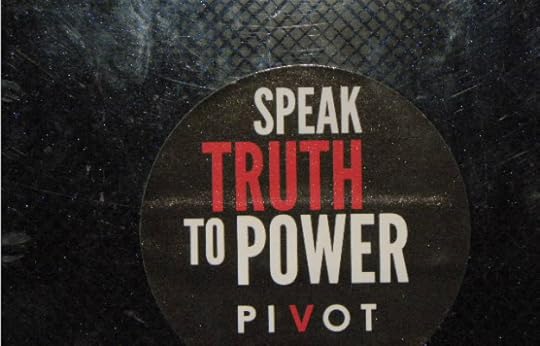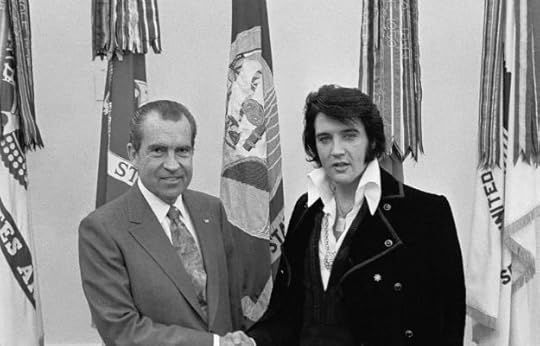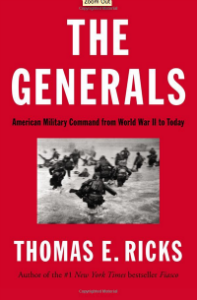Thomas E. Ricks's Blog, page 143
December 5, 2012
Paul McHale: Pivot to Asia in economics and diplomacy -- but not militarily

I've
long found Paul McHale, a former member of Congress and also a former Pentagon official, a clear thinker. Here he questions the
Pentagon's "pivot" to Asia:
"Does it make sense for the United States Army to prepare
for a protracted land war against China? . . . Should the Army really be
focused on North Korea while paying insufficient attention to Iran? And if a
post-2014 civil war in Afghanistan spills over the Durand Line and threatens
the stability of Pakistan's government, are there any issues in Myanmar that
trump the possible acquisition of nuclear weapons by the Taliban?"
West Point: How about less engineering and more emphasis on negotiating skills and strategic and cultural studies?

By Luke Hutchison
Best Defense department of military education reformation
When West Point was founded over 200 years ago, it was created
to fix a key problem in the Army, the lack of officers with engineering
skills. Without officers who knew how to
build roads, construct forts and fire artillery accurately -- the Army would be
completely ineffective. With no engineering programs at other American
universities and a problem that required more than basic training, Colonel
Thayer set out to make a rigorous academic program based on an engineering
curriculum. Today, West Point needs to
assess just like Colonel Thayer did over 200 years ago, what is required of its
graduates so that they will best contribute to the common defense.
Today education in Strategic Studies -- understanding how to
develop and execute strategy in complex and protracted conflicts that go far
beyond just tactical symbols -- is seriously lacking. The U.S. Army in Iraq had to pull a complete
180 degree turn in strategy, scrapping up a "victory" by the skin of its teeth --
losing many more lives in the process and fixing American combat power in Iraq
while the insurgency in Afghanistan regrouped.
Today in Afghanistan, as over one hundred thousand ISAF soldiers fight on
in their 11th year in that country, they find themselves in a much harder and
far longer fight than anyone anticipated. How was a better trained, better equipped, and more numerous army
ensnared twice in a decade and nearly defeated by poorly trained and equipped
insurgents? A lack of Strategic Studies
education at West Point certainly may be a place to start. Just as Colonel Thayer identified engineering
as the key area of study graduates needed 200 years ago to provide for the
common defense, today it is Strategic Studies that needs to be focused on.
West Point's faculty have done a tremendous job adding
relevant Strategic Studies related courses such as: Advanced International
Relations, Counterinsurgency Operations, Terrorism and Counter Terrorism,
Information Warfare, Winning the Peace, and Negotiation for Leaders. Yet outdated
policies bar the vast majority of cadets from taking courses such as
Counterinsurgency Operations, which has space for less than 10 percent of cadets. In
particular, West Point still requires all cadets who are not engineering majors
to take an additional three course Engineering Sequence, adding an additional
120 class hours. Cadets complete this
watered-down engineering minor with no additional credentials, except being
more "aware" of engineering. I am hardly
the first to question this Engineering Sequence. West Point's dean from
2000-2005 attempted to remove the Engineering Sequence, but was only successful
in trimming it from five courses to the three it is today.
Replacing the Engineering Sequence with three required
courses in Strategic Studies could have real tangible benefits to mission
success. Had more cadets taken
Counterinsurgency Operations, perhaps the chaos in Iraq could have been
avoided. Instead of requiring an
insurgency of officers within the Army to make an about-face in strategy, the counterinsurgency concepts would have already been broadly understood. Advanced International Relations would allow
graduates to better explain to our allies why the United States is "tilting" to one region
of the world instead of another and critically assess the strengths and
weaknesses of such a shift. The Conflict
Resolution, Analysis, and Negotiation course would help officers understand
that the conflict in Afghanistan is probably driven much more by regional
forces than by internal ones. Negotiation for Leaders would have made an
effective Key Leader Engagement second nature, instead of being awkward and
counterproductive. Or a platoon leaders'
first time visiting a mosque wouldn't have been in Iraq, but in Winning the
Peace, where they would have already visited a mosque and learned about the
intricacies of other world religions.
Organizations outside of West Point have already embraced
West Point's robust Strategic Studies courses. The FBI, NYPD, and members of
Congress rely on the Combating Terrorism Center at West Point for some of their
education on terrorism. Navy SEAL teams
and Special Forces groups fly teams from the West Point Negotiation Project
across the country to teach them how to improve their negotiation ability. How
is West Point missing this great opportunity right under its nose?
The world has changed a lot in 200 years, and so has what is
required of Army officers -- it is time that West Point catches up. Removing the Engineering Sequence
requirement, and replacing it with courses on Strategic Studies, seems like a
good place to start.
Luke Hutchison is a cadet in the class of 2013 at West
Point. The opinions expressed herein are
his alone and do not represent the official position of the Department of
Defense, United States Army, or the United States Military Academy.
Sources
Engineering Sequence
requirement
Latest USMA policy found
in the USMA academic guide the "Red Book"
Counterinsurgency
Operations course #s
This academic year there
are 74 openings (Red Book). Spread over four years this would be a total of 296 openings for the 4,624 cadets enrolled at
West Point, or 0.064 percent. There are many ways to calculate it but I think that is about as
hi-balled as a number as you could make, giving West Point the benefit of the
doubt.
Dean from 2000-2005
attempting to remove requirement.
Email from a USMA
professor
No other engineering programs
at West Point founding.
Existing Courses at West
Point.
USMA academic guide the
"Red Book."
Winning the Peace course
visiting a mosque.
FBI and intelligence
community using Combating Terrorism Center.
Navy Seals and Special
Forces using West Point Negotiation Project.
Was 1970’s 'Patton' really the first of the entire 'Godfather' series of movies?

I was talking about
the 1943 American/British/Canadian campaign in Sicily the other day, which got
me sidetracked into talking about the film Patton, which is how most
Americans today know anything about that fight. Two little-known facts: The
film was produced by Frank McCarthy, who had been an aide to George
Marshall during World War II.
And, it was written
by one Francis Ford Coppola. Given that much of the film
takes place in Sicily, does that make it a kind of prequel to the Godfather
series?
December 4, 2012
Mission command is nice but what will make commanders actually practice it?

As I've mentioned, I was out
at Fort Leavenworth last week. Among other things, I collected enough doctrine and books
to give my suitcase a hernia.
In the new material there is
lots of emphasis on mission command. I think it is a fine idea. What I don't
understand is what incentives there are for commanders to actually practice it.
I think many will give mission command lip service and then issue scads of
fragmentary orders, undercutting the whole idea. We saw this in the report on the 2nd ACR's October maneuvers in
Germany.
The response I get is that it
is so hard because we have a "zero defects" Army. I don't think we do. We have
a micromanaging Army. If there really were no tolerance for defects, wouldn't
we see more reliefs for incompetence?
Also, contrary to some stray comments,
the prospect of relief does not increase micromanagement. In my book, I argue
that it actually decreases it. (But to understand that, Maj. Rod, you'd have to
read the book, not just the comments on Amazon about
it.)
What austerity looks like?: The British army is told to take the month off

"The British Army has been ordered to take an extended 25-day
Christmas holiday or ‘work from home' in an attempt to cut its gas and electricity bills," reports a British
newspaper. This reminds me of George
Marshall as a Depression-era garrison commander encouraging his married troops
to take time to plant vegetables.
Not so, Joe, responds
the Ministry of Defence's blog. "To suggest the Christmas leave plan is a cost-cutting measure is
not true. In recognition of the exceptionally busy year the Army has had, both
on operations and at home -- including vital support to the London 2012
Olympics, fuel tanker drivers' strike and the Diamond Jubilee -- the usual
Christmas leave period has been extended. Personnel who are essential to
supporting operations will remain on task regardless of this leave period and
there will be no impact on the mission in Afghanistan."
From that blog, I also learned that the Welsh regiment has a "goat
major." That is different, apparently, from
aging majors who are old goats.
Also, if you believe the Daily Mail (and you may well not) someone stole
a pony from the British armed forces.
Break your kid's leg before he deploys?

This hit me: Not once, but
twice recently, I have been seen someone in the military say that if he had a
child about to deploy to Afghanistan, he would push him down the stairs or do
something else to make him undeployable. Something is going on here, but I
don't know exactly what it is. Do you, Mr. Jones?
It makes me think that the
new anti-war movement is inside the military.
December 3, 2012
Jaffe's sober assessment of Petraeus

This is worth reading. "Petraeus's
experience over the past decade shows that generals are not immune to the
strain. They get used up, too," writes Greg Jaffe. I have heard Petraeus' tour in
Afghanistan referred to as his "fat Elvis" period, an unkind way of saying that
he was tired and not on his A-game there.
I suspect that in Iraq, Petraeus tried
to work with local factors as points of leverage, while in Afghanistan, his
campaign against corruption worked against local factors. But I don't know the
Afghan war well enough to assemble the evidence for that hunch. Can anyone
enlighten me on this?
'Protests shut down West Point as first gay marriage takes place at Cadet Chapel'

If the calamity howlers about gays in the military had been right,
that is what would have happened the other day. But actually the
first gay marriage at West Point went by very
quietly.
25: Seabees CO ousted

For professional failings! That's a nice change from all
the stuff about zipper problems and dancing naked on tables at Subic Bay. The
Navy is now just one short of the record set in 2003, according to the official
scorekeeper.
Not quite done: This week's book appearances in D.C. and Richmond

I'm finished with non-stop
book touring, but still giving talks here and there. Tonight (Monday, 3 Dec.) at
7:30 I will be at the Hill Center in Washington, D.C., about 10 blocks
southeast of the Capitol.
Tomorrow night (Tuesday, 4
Dec.) will find me in Richmond, Virginia, speaking at 5:30 the Jefferson Hotel at an event
sponsored by the George C. Marshall Foundation.
Thence back to D.C. and a talk
at the National War College at noon on Thursday, Dec. 6.
And no TV this week, if at
all possible.
By the way, I think Best
Defense commenters should resist the temptation to respond to partisan
trolls. I feel like we
have an infestation right now. They thrive on attention, irrationality, and
incivility.
Thomas E. Ricks's Blog
- Thomas E. Ricks's profile
- 436 followers



